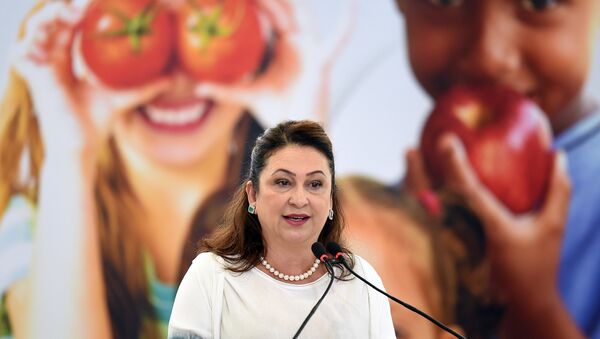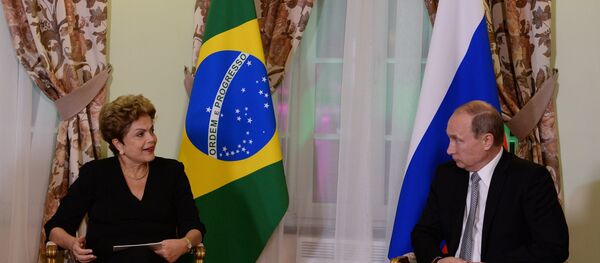The European Union, the United States and their allies imposed several rounds of sanctions against Russia for its alleged involvement in the Ukrainian crisis in 2014. Moscow has repeatedly denied those claims, and, in August 2014, responded by imposing a year-long ban on certain food imports from the countries that imposed the economic restrictions.
In late June, Russian President Vladimir Putin signed a decree extending the countermeasures.
“For us it [Russia’s embargo] became an opportunity to compensate for the lack of products, subjected to embargo – mainly, meat, milk and fruit. Currently we are trying to strengthen these relations, for them not to become something temporary… Our aim is to build mature business relations with Russia,” Abreu said.
The Brazilian minister added that Russia is expected to begin exports of wheat and fish to Brazil.
“We have practically agreed upon it,” Abreu said.
Deterioration of Russia’s relations with the West amid the Ukrainian crisis prompted Moscow to develop stronger ties with countries of Latin America and BRICS.
Earlier in July, Brazilian President Dilma Rousseff said that Brazil fully supports Russia's claim that the Western economic sanctions are counterproductive.
The current Brazilian presidential administration is working on legislation that would facilitate a switch to national currency payments in mutual trade with Russia, Brazil’s Minister of Agriculture said.
"Presidential administration of Brazil is preparing a corresponding bill, that would facilitate transition to national currencies from the Brazilian side. I think, the other [BRICS] countries are also studying their legislation in this regard," Abreu said.
At the July BRICS Summit in the Russian city of Ufa, Russian President Vladimir Putin proposed to Brazilian leader Dilma Rousseff to consider switching to national currency in mutual trade.
Moscow has reached a similar deal with Beijing.
Moscow stepped up cooperation with Latin America and BRICS countries in light of a deterioration in Russia’s relations with the West, following accusations of fueling the internal Ukrainian crisis – a claim Russia repeatedly denied.
Russia and Brazil boosted agricultural trade and are currently mulling cooperation in the nuclear energy sphere.


